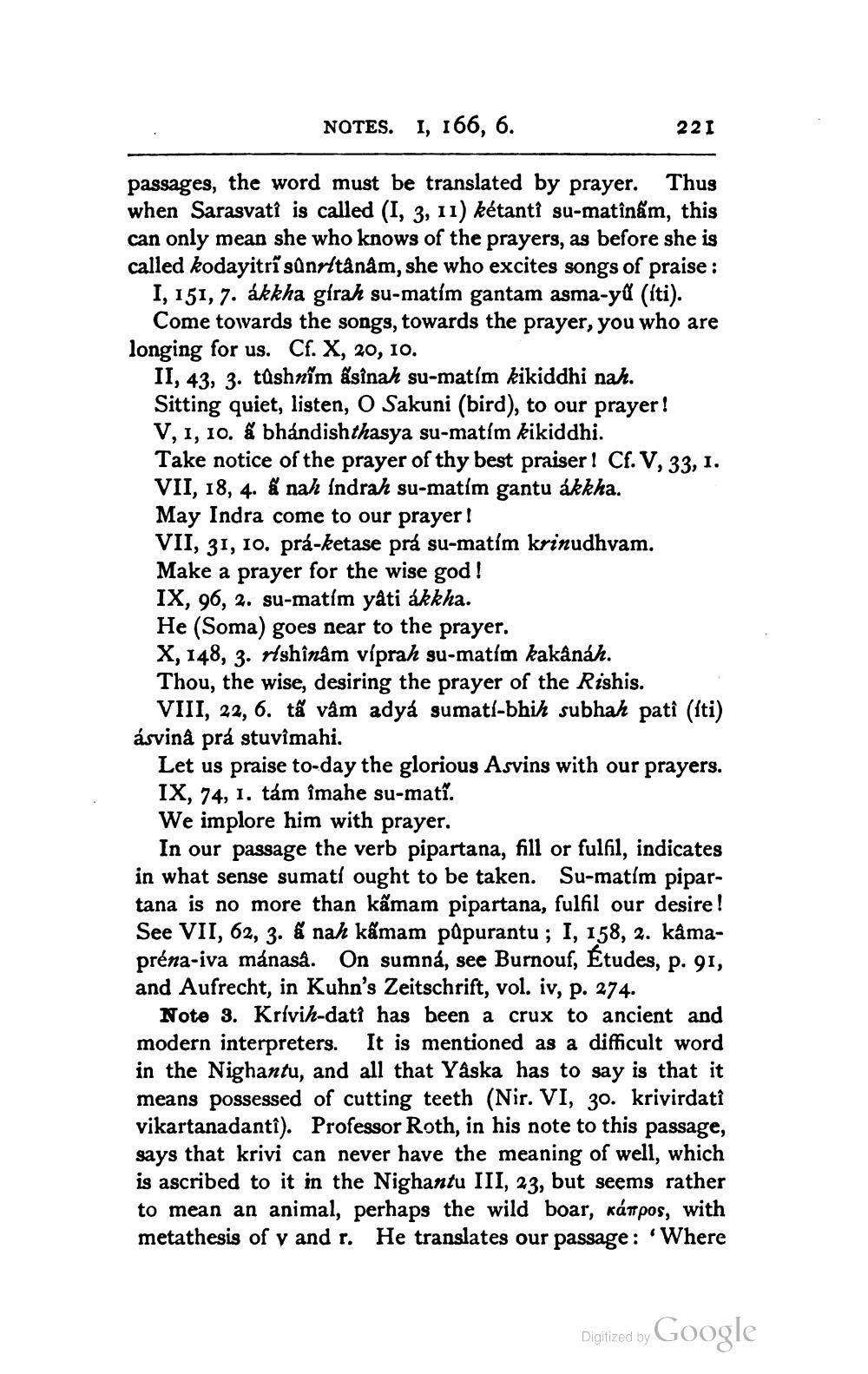________________
NOTES. I, 166, 6.
221
passages, the word must be translated by prayer. Thus when Sarasvati is called (I, 3, 11) kétanti su-matînăm, this can only mean she who knows of the prayers, as before she is called kodayitrî sûnrltànâm, she who excites songs of praise :
I, 151,7. ákkha girah su-matím gantam asma-yů (iti).
Come towards the songs, towards the prayer, you who are longing for us. Cf. X, 20, 10.
II, 43, 3. täshnim ásinah su-matím kikiddhi nah. Sitting quiet, listen, O Sakuni (bird), to our prayer! V, 1, 10. å bhandishthasya su-matím kikiddhi. Take notice of the prayer of thy best praiser ! Cf. V, 33, 1. VII, 18, 4. & nah Indrah su-matim gantu ákkha. May Indra come to our prayer ! VII, 31, 10. prá-ketase prá su-matím krinudhvam. Make a prayer for the wise god! IX, 96, 2. su-matim yati ákkha. He (Soma) goes near to the prayer. X, 148, 3. réshînâm víprah su-matim kakânáh. Thou, the wise, desiring the prayer of the Rishis.
VIII, 22, 6. tã vậm adyá sumatl-bbih subhah patî (Iti) ásvinâ prá stuvimahi.
Let us praise to-day the glorious Asvins with our prayers. IX, 74, 1. tám îmahe su-matí. We implore him with prayer.
In our passage the verb pipartana, fill or fulfil, indicates in what sense sumati ought to be taken. Su-matím pipartana is no more than kấmam pipartana, fulfil our desire! See VII, 62, 3. & nah kấmam papurantu; I, 158, 2. kâmapréna-iva mánaså. On sumná, see Burnouf, Etudes, p. 91, and Aufrecht, in Kuhn's Zeitschrift, vol. iv, p. 274.
Note 3. Krivih-dati has been a crux to ancient and modern interpreters. It is mentioned as a difficult word in the Nighantu, and all that Yaska has to say is that it means possessed of cutting teeth (Nir. VI, 30. krivirdati vikartanadantî). Professor Roth, in his note to this passage, says that krivi can never have the meaning of well, which is ascribed to it in the Nighantu III, 23, but seems rather to mean an animal, perhaps the wild boar, kámpos, with metathesis of v and r. He translates our passage: Where
Digitized by
Digized by Google




